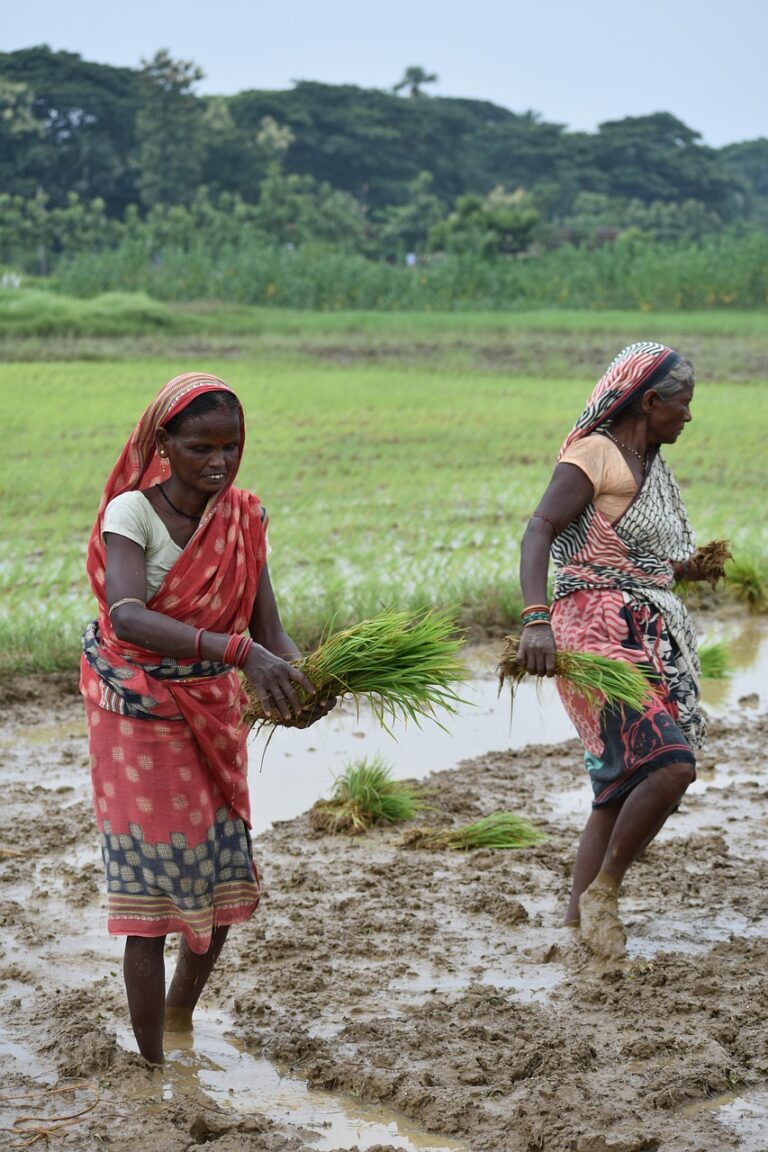
Becoming heroes in the fight against desert locusts
In Kenya, Sergeant Brian and the National Youth Service are winning the battle against a dangerous pest and food insecurity

When Kenya suffered an unprecedented wave of desert locusts in early 2020, it spelled disaster for thousands of farmers and rural communities. The arid and semi-arid lands of the country, where the most vulnerable smallholders and agropastoralists dwell, were a prime feeding ground for the pest. Like a living carpet, hopper bands covered large swathes of land, and swarms reached the most remote of locations.
Sergeant Brian Odhiambo of the Kenyan National Youth Service (NYS) remembers how worried he was. “Desert locusts feed on pasture and crops that our country depends on. This means that there’ll be no food on our tables,” he thought. “When a family goes to the farm and what they had farmed has been eaten up by the desert locusts, there is going to be hunger. Our children cannot go to school hungry.”
The situation was serious. There were large swarms of crop and pasture-eating insects on a scale not seen in several generations, and Kenya had neither the expertise nor the capacity to fight them. With food insecurity already high due to recurring drought, vulnerable farmers and pastoralists could ill afford another hit.
Rallying to meet the challenge
However, Kenya rallied to meet the challenge. Specialised desert locust control operations are complex and require the engagement of well-trained teams, so the Kenyan government, with support of FAO, trained 696 community scouts, 140 county extension officers, 25 environment, health and safety experts and 60 county agricultural officers on control operations.
The government also recruited members of the National Youth Service (NYS), the country’s voluntary work and educational programme for young citizens, who played a key role in the fight against desert locusts. 500 National Youth Service (NYS) people and 20 NYS supervisors underwent training, including Sgt. Brian, who later oversaw a group of 200 trained service people deployed on desert locust control operations.
The terrain in the remote parts of semi-arid northern Kenya is extremely rugged and getting around is a challenge. It was no easy task. The COVID-19 pandemic restrictions in place at the time made operations in these remote and rugged regions of the country that much more challenging.

“When the locust invasion came to this country, it was a menace. You would hear about it in all radio stations and television channels. Many Kenyans did not understand what these locusts were,” Sgt. Brian said. “I was excited because I got a chance to go and learn more about them and took part in the control operation.”
FAO trained of 22 young professionals in the Ministry of Agriculture on various aspects of desert locust management and worked with the government to ensure that only well-trained and properly equipped teams undertook part in the desert locust control operations.
The sessions included training on the use of eLocust3g, FAO’s handheld GPS-based data recording and transmission device designed for use in difficult and remote locations where monitoring is a challenge and there is no network. The device consists of a robust GPS and custom designed software, which enables those on the ground to gather standard data and transfer it via satellite from the field to the regional locust command centre in Lewa. The coordinates of sighted locusts are mapped and shared in real-time with air and ground-based locust control teams for targeting.
“We would wake up at around 5:30 AM. By 6:30 AM we were already out on the road. Other teams on the ground would share information on where the swarms are, how large they are, and how many swarms that are in that area. So, we would head towards that specific location, knowing how far we can reach per day,” Sgt. Brian said.
In total, 500 National Youth service members took part in the ground control.
The NYS has been in the forefront of the desert locust fight in Kenya. If they had not, Sgt. Brian believes the destruction would have been far worse.
“Our service people who went out there delivered 100 percent. The feedback from the villagers and the government is always encouraging. Such encouragement and the impact of services we give to the community keeps us going,” Sgt. Brian said.
A desert locust-free Kenya
“If it wasn’t for the various partnerships, this whole success story would not have been realised,” notes Sgt. Brian. The results were indeed excellent, and Kenya is now desert locust-free. In just over a year, the country has built a strong institutional capacity to tackle future resurgences and, in addition to the training of young professionals, a desert locust monitoring command centre established with FAO’s support.
Now, Sgt. Brian is helping to train more NYS volunteers in locust management best practices. “I teach them to understand why this desert locust needs to be controlled and how to control them,” says Sgt. Brian.
“What inspires me are the youth that I work with. I feel great having helped these boys have that drive to do service for our country.”
It was Sgt. Brian, and many of the heroes like him, that made it possible for Kenya to contain the historic 2020–2021 desert locust upsurge. As other countries across Africa and the globe continue to fight against desert locusts, many other food heroes are rising to the challenge, working closely with FAO and their governments to protect communities, livelihoods and food security.
FAO operates a global system that monitors Desert Locust and provides early warning to locust-affected countries. In addition, FAO supports governments to monitor and respond to desert locust emergencies by strengthening national capacities and providing technical guidance in the planning and execution of control campaigns. With the generous support of resource partners, FAO and national governments affected by the 2020–2021 upsurge in Eastern Africa have worked together to save 4.4 million metric tonnes of cereals from destruction and avoid USD 1.7 billion in potential economic losses.
Source: the FAO News and Media office
– global bihari bureau





